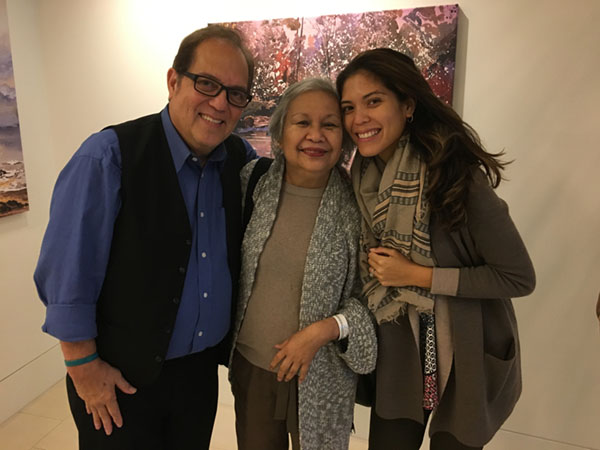A Loving Daughter Promotes BRCA Screening Worldwide
Author: Laurel Skurko, Marketing Director, UCSF Radiology and Biomedical Imaging

Ginger Conejero was living the dream. Crowned Miss Philippines Earth in 2006, she was enjoying a successful career as a reporter and newscaster for the largest broadcasting network in the Philippines, ABS-CBN Broadcasting Corporation.
All that changed when her mother, Azela, who was living in the Bay Area, was diagnosed with BRCA-related ovarian cancer in January 2015. Ginger took a leave of absence to be at her mother’s side. She also took steps to take care of herself by undergoing simple genetic testing to determine if she has the gene mutation that is related to her mother’s and her maternal aunt’s cancers.
As Ginger related in an interview at UCSF Radiology’s “Considering BRCA Genes: Knowledge Improves Outcomes” event, co-hosted by the UCSF Helen Diller Family Comprehensive Cancer Center, she is not diagnosed as BRCA-positive but her experience with her mother opened her eyes to the importance of screening for hereditary cancers. When UCSF doctors first recommended genetic testing, Ginger says, “I thought, ‘Is that really necessary?’ But the team at UCSF went through the benefits of being tested, and I’m glad I did it. Not just because I don’t have the gene mutation, but because it provided a lot of information.”
In order to be able to give ongoing support to her family, Ginger has relocated to the Bay Area where she is now an Associate Producer for The Filipino Channel, a worldwide subscription network based in Daly City. She makes the effort to attend events on cancer to improve her knowledge of complex health issues and to get the support she and her family both need as they navigate the care and treatment of loved ones.
Ginger monitors both breast and ovarian cancer awareness, in light of her experience of supporting her mother. She hopes to someday help audiences sort through the vast array of health news to focus on the importance of early screening even for those who have no family experience of cancer. Ginger also knows that outside of the United States, awareness of the importance of screening is not as strong, nor is screening necessarily offered. She sees her position as a journalist in two cultures as an opportunity to influence not just patients who might be able to be screened, but the larger cultural landscape on the necessity of screening.
